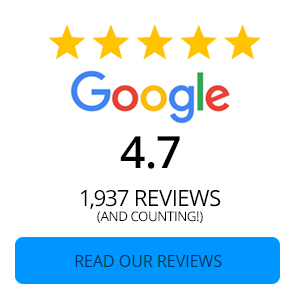The Christmas cookies have all been eaten, all the presents unwrapped and the decorations are being packed away for next year. If you used credit cards to pay for all of the Christmas fun, you may be left with a feeling of dread about that looming credit card statement. While overall, spending this Christmas was expected to be down a bit, Americans still planned to spend an average of $851 per shopper on gifts alone in 2020. (source: American Research Group, 11/2020). Factor in more spending on food, decorations and holiday activities, and that number could easily climb to above $1,000. So what do you do if you charged all of that, and now the bill is coming due?
First things first: know how much you owe. It's easy to lose track of how many times you swiped that card and for how much, especially during the hectic Christmas season. Online shopping makes it doubly hard to keep up, because no one is handing you a physical paper receipt. Before those credit card bills come in, make sure to sit down and document how much you spent and where. Gather the receipts you do have, print out those that were emailed, and login to your credit card company's website or app to review purchases. (Secondary tip: while you're reviewing those credit card transactions, make sure they are all actually yours and accurate!)
Now that you know how much you spent, you can more easily make a plan of attack. Try to pay down this debt as quickly as you can; paying interest on Christmas spending is one way to get 2021 started off on the wrong foot for sure. Here are a few tips to attack that debt:
- Remember that cute sweater you bought your niece that was such a great deal because it was on sale? It's not such a great deal anymore with added interest payments, so use as much as of your disposable income as possible to pay off Christmas spending. That may mean less discretionary spending on things like ordering take out for a month or two, but keep your eyes on the prize! An aggressive budget for the first three months of the year, with ALL available discretionary spending going towards that debt, will make for a much happier rest of 2021.
- Another good tip is to go ahead and allocate any tax refund you expect to receive to paying down debt. By this time of year, you should have a good idea of what your taxable income for 2020 was to determine whether you'll be getting a refund, and how much it might be. Go ahead and plan to put that full refund towards your holiday debt. Depending on your situation, that may knock it out entirely!
- If all else fails, you may be able to transfer your existing credit card balance to a new credit card offering an introductory zero interest period. Many banks and credit card companies offer 0% balance transfer promotions at the beginning of the year, for just this reason. Transferring your current balance to a card with no interest will help you pay that debt off much quicker, and save you money. But remember, don't add MORE debt by adding new spending on either card. The goal is to eliminate the debt!
Finally, once you've paid off 2020's Christmas debt, plan to avoid this holiday hangover next year. Go ahead and set aside a certain amount in your budget every month, and send it to a special savings account just for end of the year spending. By the end of 2021, you should have a little Christmas nest egg set aside so you don't need to charge anything. A solid budget is your first line of defense against overspending!

